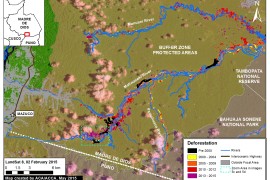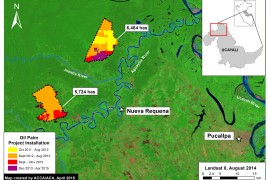Image #5: Gold Mining Deforestation Intensifies along Upper Malinowski (Madre de Dios, Peru)
Recall that in Image of the Week #1 we documented how gold mining deforestation continues to expand within the Department of Madre de Dios (Peru) in an area known as La Pampa (1,700 hectares of new deforestation between 2013 and…


